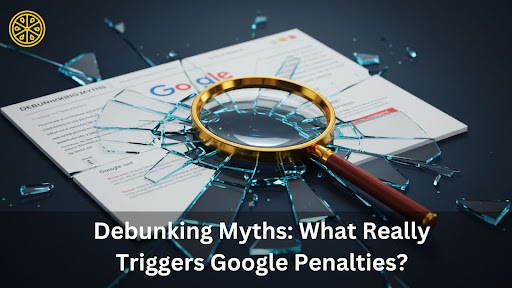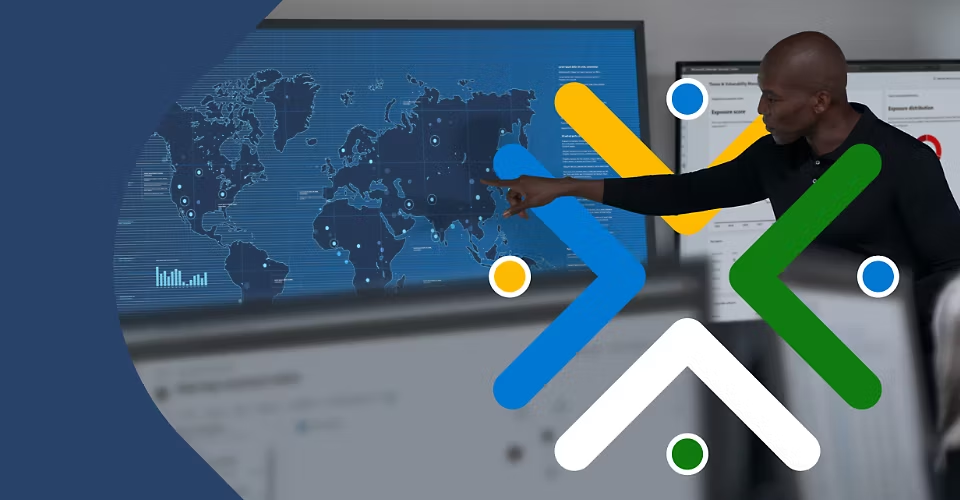Debunking Myths: What Really Triggers Google Penalties?

Have you ever been hit by a sudden drop in search engine rankings and wondered what went wrong? Many website owners find themselves asking why their traffic has tanked and what specific actions led to this unfortunate situation.
If you’ve ever been affected by a Google penalty or are trying to avoid one, understanding what truly triggers penalties can make all the difference in how you manage your SEO strategy.
There’s a lot of confusion and myth surrounding Google penalties. Many people believe that certain practices or actions directly lead to penalties, but not all of them are accurate. Some of these myths could be misleading your SEO efforts and ultimately hurt your website’s performance. Understanding the truth behind these myths is crucial for maintaining a healthy SEO strategy and avoiding penalties.
If you’re already dealing with the aftermath of a penalty or simply want to avoid them altogether, working with an expert SEO penalty removal service. To learn more about these services, visit https://seopenaltyremovalservices.com.
But first, let’s break down the most common myths surrounding Google penalties and the facts that debunk them.
Why Understanding Penalties Matters
The reason why penalties can be so frustrating is that they can severely affect your site’s visibility and performance. When Google penalizes your website, it can result in a sharp decline in organic traffic, which can lead to a loss of leads, sales, or conversions. Sometimes, it’s difficult to pinpoint the cause, as penalties aren’t always immediately obvious.
By debunking myths about what triggers penalties, you can make informed decisions about your website’s SEO approach. Not only does this prevent unnecessary mistakes, but it also allows you to keep your website’s SEO strategy clean, safe, and effective.
The benefit of understanding the real causes behind penalties is that you can fix issues proactively, avoiding potential drops in your rankings.
1. Myth: Keyword Stuffing is the Primary Cause of Google Penalties
One of the most persistent myths about Google penalties is that keyword stuffing is the main culprit. Many people still believe that overusing keywords within your content or meta tags will automatically result in a penalty. While keyword stuffing is not recommended and could harm your rankings, it is not the sole cause of penalties.
- Why It’s Not True: Google’s algorithms have become much more sophisticated over the years. Keyword stuffing used to be an issue, but nowadays, Google focuses more on the overall relevance and context of content rather than just keyword frequency. Google can now understand the intent behind the search query, so the content should provide valuable and relevant information, naturally integrating keywords.
To avoid penalties related to keyword overuse, focus on creating content that is valuable and serves the user’s intent. For instance, instead of overstuffing your pages with the same keyword, use variations and related terms, and ensure your content flows naturally and makes sense to readers.
2. Myth: Using Too Many Links Will Lead to a Penalty
Another common myth is that linking out to many external sources or having too many backlinks can result in a penalty. The assumption is that too many links can make your site appear spammy, leading to a penalty. However, this is not entirely accurate.
- Why It’s Not True: What Google actually looks for is the quality, not the quantity, of backlinks. High-quality, relevant backlinks from trusted sources can actually improve your rankings. On the flip side, having spammy or irrelevant links pointing to your site can trigger penalties. So, it’s not about the number of links, but rather the quality and relevance of those links.
To avoid penalties related to links, focus on acquiring backlinks from authoritative, reputable sources within your industry. Avoid engaging in black-hat link-building practices, such as buying links or using link farms. Instead, create high-quality content that naturally attracts backlinks and engage with other industry experts for guest posts or collaborations.
3. Myth: Google Penalties Are Always Manual Actions
When people think of Google penalties, they often imagine a manual penalty from Google’s team. While manual actions do exist, there is another type of penalty that could be affecting your website: algorithmic penalties. These are penalties triggered by Google’s algorithms rather than by human intervention.
- Why It’s Not True: Manual penalties are typically issued when Google’s team reviews a website and finds violations of their guidelines. Algorithmic penalties, however, occur when Google’s algorithms detect issues automatically. These penalties can arise from issues like poor content, duplicate content, or low-quality backlinks.
If you’ve seen a drop in rankings but haven’t received a manual penalty notification, it’s possible that an algorithm update has caused the issue. In this case, you should analyze your website’s content, backlinks, and overall SEO health to determine if you’ve violated any of Google’s guidelines. Regular audits are essential for identifying algorithmic issues.
4. Myth: Social Media Signals Are a Major Ranking Factor
It’s often believed that social media signals directly impact search rankings. The idea is that the more shares, likes, or social mentions your content gets, the higher it will rank in search engine results. However, Google has made it clear that social signals alone are not a direct ranking factor.
- Why It’s Not True: While social media can help increase brand visibility and drive traffic to your site, it doesn’t directly influence rankings. Google’s algorithms do not factor in social media activity when determining a website’s ranking. What really matters is the quality of your content and how well it satisfies user intent.
That said, social media can still play a crucial role in your overall marketing strategy by driving traffic, building brand awareness, and fostering engagement. It’s simply not a direct ranking factor in the same way as content quality, backlinks, or technical SEO.
5. Myth: Duplicate Content Always Leads to a Penalty
A widespread myth is that having duplicate content on your site will automatically result in a penalty from Google. While duplicate content can be problematic, especially if it’s not properly handled, it does not necessarily lead to a penalty.
- Why It’s Not True: Google doesn’t penalize websites for having duplicate content; instead, it simply ignores it or filters it out. However, if Google finds duplicate content across multiple websites, it might confuse the search engine about which version should rank. The issue lies in the inability of search engines to determine the original source or the most relevant content.
To avoid any negative impacts from duplicate content, you should use canonical tags to indicate the original version of the content. If there is duplicate content on your website, consider consolidating it or rewriting it to make it unique. For large e-commerce sites with many similar product pages, proper use of canonicalization can help prevent penalties.
Conclusion
In the world of SEO, there are many myths surrounding what triggers Google penalties, and these myths can often cause confusion and anxiety for website owners. By debunking common misconceptions—such as keyword stuffing being the sole cause of penalties or the idea that social media signals directly impact rankings—you can better understand how to maintain a healthy SEO strategy.
By focusing on high-quality content, legitimate backlinks, and proper technical SEO practices, you can avoid the risk of penalties and ensure your website continues to perform well in search rankings. Regular SEO audits, staying up-to-date with algorithm updates, and understanding Google’s guidelines are key in preventing penalties from occurring.
If you find yourself dealing with the aftermath of a penalty or need guidance on how to clean up your site’s SEO, working with an experienced SEO penalty removal service can be the right step to take. Stay proactive, avoid common pitfalls, and focus on providing real value to your audience, and your website will thrive in the long run.





